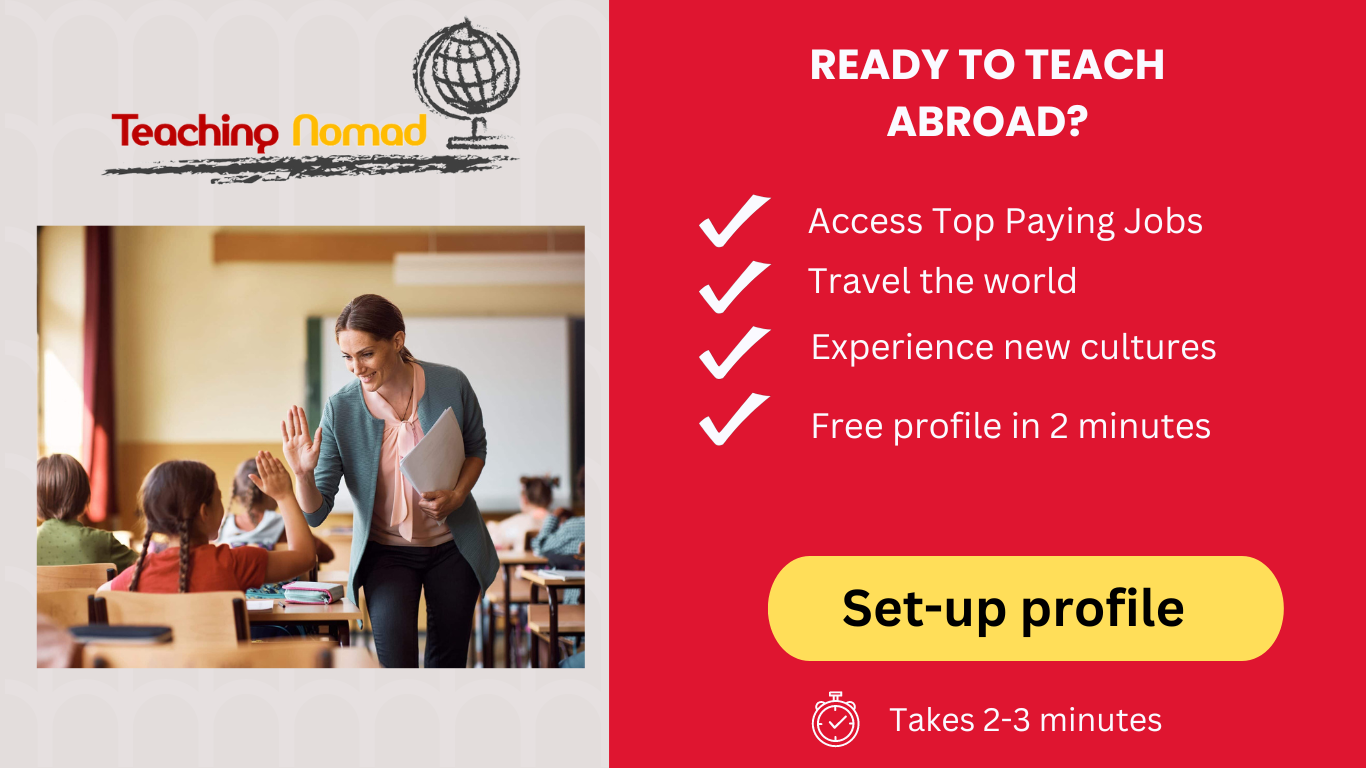As an educator, teaching abroad can be a rewarding and transformative experience. It offers the chance to immerse yourself in a new culture, broaden your perspectives, and make a positive impact on students’ lives. However, to truly maximize your time abroad, it’s important to be well-prepared and equipped with the right knowledge. In this guide, we will provide you with essential travel tips for educators teaching abroad, ensuring that your experience is both enjoyable and successful.
Introduction
Teaching abroad presents a unique opportunity to not only educate students but also to explore a new country and culture. By making the most of your time abroad, you can enhance your teaching skills, gain cultural understanding, and create lasting memories. We will cover various aspects of preparing for your trip, finding accommodation, navigating local transportation, exploring the local culture, balancing work and travel, ensuring safety and security, and embracing new experiences.
Preparing for Your Trip
Before embarking on your teaching journey, thoroughly research your destination. Familiarize yourself with its history, customs, traditions, and local norms. This knowledge will help you adapt quickly and build rapport with your students and colleagues. As an educator, you may need specific teaching materials or resources that are not readily available at your destination. Consider packing them in advance to ensure a smooth transition into your new teaching environment. Educate yourself about the cultural norms, customs, and etiquette of your host country. Knowing the appropriate ways to interact and communicate with students, parents, and colleagues will help you establish positive relationships and avoid misunderstandings.

Finding Accommodation
Depending on your teaching assignment, you may have the option to live on-campus or find your own accommodation off-campus. Consider the pros and cons of each option based on your preferences, convenience, and proximity to your teaching location. Use reputable online platforms or local contacts to research and book your accommodation in advance. Read reviews, compare prices, and choose a place that suits your needs and budget. Consider sharing accommodation with other educators or locals to split costs. Additionally, explore various housing options such as apartments, homestays, or shared houses to find an affordable and convenient living arrangement.
Navigating Local Transportation
Familiarize yourself with the public transportation system in your host country. Learn about the different modes of transport, such as buses, trains, or trams, and how to navigate them effectively. Research the routes, schedules, and ticketing systems of local transportation. This knowledge will enable you to commute to your teaching location and explore your surroundings easily. Consider getting a local transportation card or pass to enjoy discounted fares. Plan your routes in advance, especially during peak hours, to avoid delays. Additionally, explore alternative modes of transportation, such as biking or walking, to experience the local atmosphere and stay active.

Exploring the Local Culture
Embrace the opportunity to learn about and participate in local traditions and customs. Attend festivals, cultural events, or workshops to deepen your understanding of the host country’s culture and engage with your students and their families. Sampling local cuisine is a delicious way to connect with the local culture. Try traditional dishes, visit local markets, and explore popular attractions to fully appreciate the richness and diversity of your host country. Connect with local educators, organizations, or expat communities to expand your social network and foster cross-cultural relationships. Engaging with the local community will not only enrich your teaching experience but also provide a support system during your stay.
Balancing Work and Travel
Plan your teaching schedule and allocate time for personal exploration and travel. Efficient time management will allow you to strike a balance between your professional responsibilities and your desire to explore the host country. Take advantage of weekends and school holidays to embark on short getaways or longer trips within your host country or neighboring countries. Research nearby destinations, create itineraries, and make the most of your time off to indulge in new experiences. It’s essential to maintain a healthy work-life balance to avoid burnout. Prioritize self-care, set boundaries, and engage in activities that replenish your energy and rejuvenate your spirit.

Safety and Security Tips
Familiarize yourself with local safety guidelines, emergency contact numbers, and potential risks in your host country. Stay informed about any travel advisories or precautions specific to the region. Educate yourself about the laws, regulations, and cultural sensitivities of your host country to ensure you adhere to them. Respect local customs, dress modestly if necessary, and be mindful of your behavior both inside and outside the classroom. Take precautions to protect your personal belongings and important documents. Use secure locks for your accommodation, keep copies of your passport and visas, and register with your embassy or consulate to stay informed and receive assistance if needed.
Embracing New Experiences
Embrace the unfamiliarity and step out of your comfort zone. Be open to new teaching methods, embrace cultural differences, and adapt to the local education system. This mindset will enhance your teaching skills and foster personal growth. Make the most of your free time by trying new activities or hobbies. Whether it’s learning a local dance, immersing yourself in a new art form, or joining a sports club, these experiences will help you connect with the local community and create lasting memories. Teaching abroad presents a unique opportunity for personal growth, self-reflection, and self-discovery. Embrace the challenges, learn from your experiences, and celebrate the transformative journey that teaching abroad offers.

Conclusion
We covered various essential travel tips for educators teaching abroad, including preparing for your trip, finding accommodation, navigating local transportation, exploring the local culture, balancing work and travel, ensuring safety and security, and embracing new experiences. Teaching abroad is not just about imparting knowledge but also about fully immersing yourself in a new culture and embracing new experiences. Seize this unique opportunity to broaden your horizons, challenge yourself, and leave a lasting impact on your students and your own life. Teaching abroad is an adventure that combines education, cultural exchange, and personal growth. Embrace the challenges, approach each day with an open mind, and savor every moment of your time abroad as an educator. Let this experience shape you into a more well-rounded, culturally aware, and globally-minded educator.
By following these essential travel tips, you can maximize your time abroad as an educator and create a truly memorable and rewarding teaching experience overseas.

